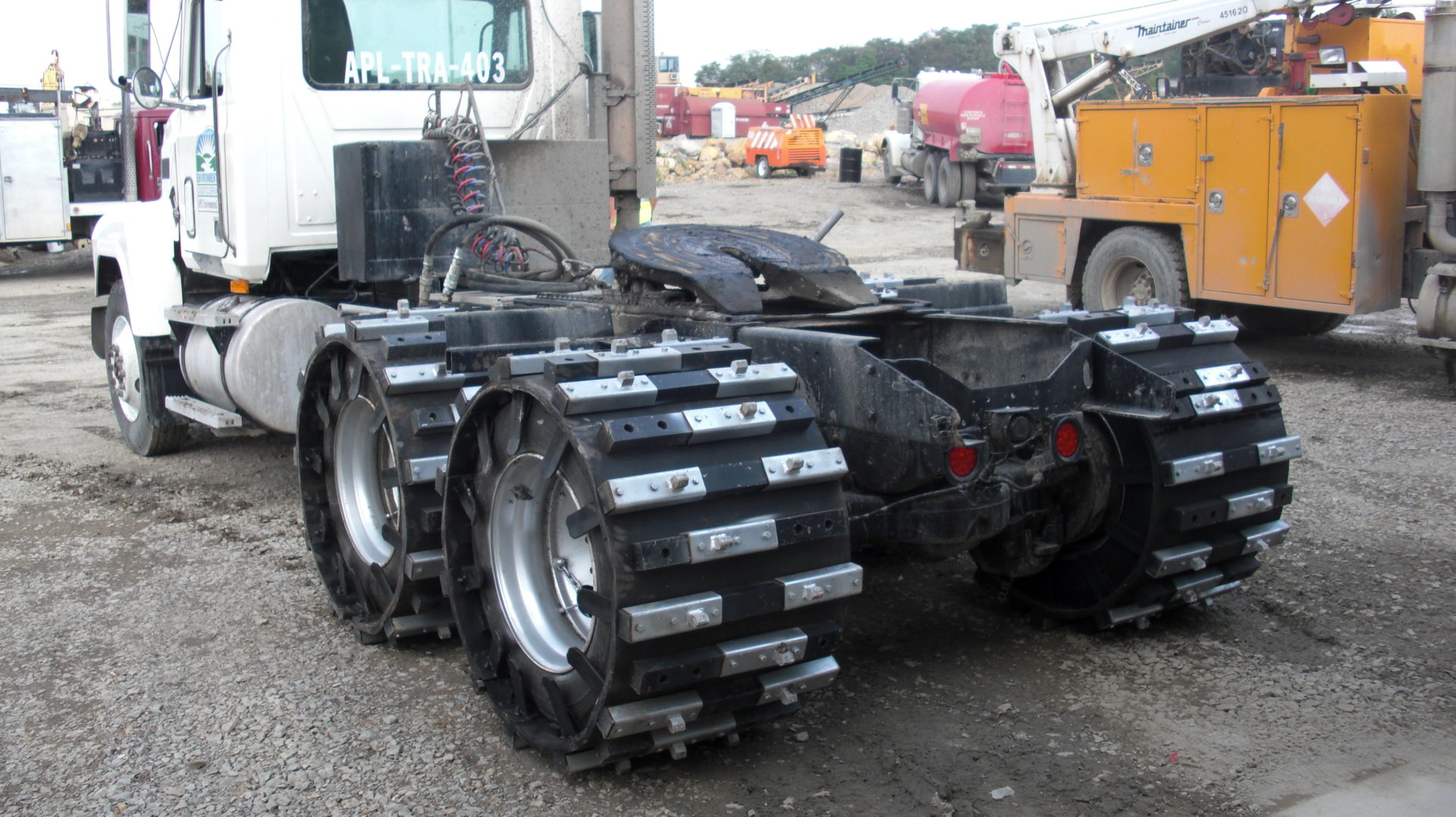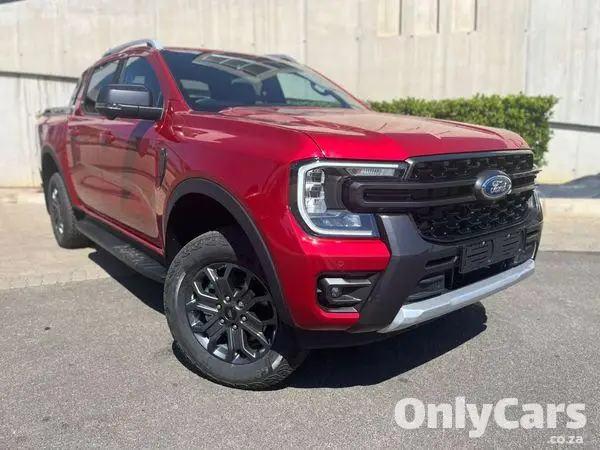Tackling challenging terrain often requires more than just a powerful truck; it demands specialized equipment. For navigating mud, snow, sand, or soft ground, truck tracks offer an unparalleled advantage. However, the cost of new track systems can be prohibitive for many. This is where the market for used truck tracks for sale comes into play, providing a more accessible and cost-effective solution. This guide delves into the world of used truck tracks, offering practical advice, considerations, and actionable insights to help you make an informed purchase.
Introduction: Why Consider Used Truck Tracks?
Navigating the Terrain: A Comprehensive Guide to Buying Used Truck Tracks
Used truck tracks offer a significant advantage in terms of affordability compared to purchasing a brand-new system. They allow individuals and businesses to equip their trucks for off-road applications without breaking the bank. Whether you're a farmer needing to access fields in wet conditions, a construction worker navigating muddy job sites, or an outdoor enthusiast exploring remote trails, used truck tracks can significantly enhance your vehicle's capabilities. However, buying used requires careful consideration and due diligence to ensure you're investing in a reliable and effective system.
I. Understanding the Benefits of Truck Tracks
Before diving into the used market, it's crucial to understand the benefits truck tracks offer:
- Enhanced Traction: Tracks distribute the vehicle's weight over a larger surface area, significantly reducing ground pressure and preventing sinking in soft terrain.
- Improved Flotation: This wider footprint allows the truck to "float" over mud, snow, and sand, where tires would simply sink.
- Increased Stability: The tracks provide a more stable platform, especially on uneven or sloped surfaces.
- Reduced Ground Disturbance: Compared to tires, tracks can minimize ground disturbance, making them ideal for environmentally sensitive areas.
- Versatility: Truck tracks allow your existing truck to be used in applications where specialized vehicles like ATVs or tracked vehicles might otherwise be required.

II. Key Considerations Before Buying Used Truck Tracks
Buying used requires a different mindset than buying new. Here's what to consider:
- Compatibility: The most crucial factor is ensuring the tracks are compatible with your truck's make, model, and axle configuration. Track manufacturers typically provide compatibility charts or guides.
- Condition: Thoroughly inspect the tracks for signs of wear and tear. Look for cracks, cuts, or missing lugs on the track belts. Examine the undercarriage for rust, corrosion, or damage.
- Hours of Use: Ask the seller about the number of hours the tracks have been used. Higher hours generally indicate more wear and tear.
- Maintenance History: Inquire about the maintenance history of the tracks. Regular lubrication and adjustments are essential for longevity.
- Price: Compare prices from multiple sellers to ensure you're getting a fair deal. Factor in the cost of any necessary repairs or maintenance.
- Seller Reputation: Buy from reputable sellers with a proven track record. Check online reviews and ask for references.
- Warranty: While unlikely with very used tracks, some sellers may offer a limited warranty. Even a short warranty can provide peace of mind.
- Weight and Load Capacity: Ensure the tracks and your truck can handle the load you intend to carry. Overloading can damage the tracks and the truck's drivetrain.
- Installation: Understand the installation process. Some tracks are relatively easy to install, while others may require specialized tools or expertise.
- Terrain: Consider the type of terrain you'll be using the tracks in. Some tracks are better suited for specific applications, such as snow, mud, or sand.


III. Inspecting Used Truck Tracks: A Detailed Checklist
A thorough inspection is crucial. Here's a detailed checklist:
- Track Belts:
- Cracks and Cuts: Look for any cracks or cuts in the rubber track belts. These can weaken the tracks and lead to premature failure.
- Lug Integrity: Ensure the lugs (the raised portions that provide traction) are intact and not worn down.
- Belt Tension: Check the belt tension. Loose belts can slip and cause damage, while overly tight belts can put excessive stress on the system.
- Undercarriage:
- Rollers and Idlers: Inspect the rollers and idlers (the wheels that support the track) for wear, damage, or corrosion. Ensure they rotate freely.
- Bearings: Check the bearings for play or looseness. Worn bearings can cause excessive noise and premature failure.
- Frame and Mounting Points: Examine the frame and mounting points for rust, cracks, or bends.
- Drive System:
- Sprockets: Inspect the sprockets (the toothed wheels that drive the track) for wear or damage.
- Drive Shafts: Check the drive shafts for bends or cracks.
- Overall Condition:
- Rust and Corrosion: Look for signs of rust and corrosion, especially in areas that are exposed to moisture.
- Missing Parts: Ensure all parts are present and accounted for.
- Leaks: Check for any leaks from hydraulic components (if applicable).
IV. Types of Used Truck Tracks Available
While the core function remains the same, truck tracks come in various designs:
- Rubber Tracks: The most common type, offering a good balance of traction, durability, and cost.
- Steel Tracks: More durable than rubber tracks but also heavier and more expensive. Often used in extreme conditions.
- Hybrid Tracks: Combine rubber and steel components for a compromise between durability and weight.
V. Finding Used Truck Tracks for Sale
Several avenues can be used to find used truck tracks for sale:
- Online Marketplaces: Websites like eBay, Craigslist, and specialized equipment marketplaces often list used truck tracks.
- Equipment Dealers: Some equipment dealers that sell new track systems may also offer used options.
- Auction Sites: Agricultural and construction equipment auctions can be a good source for finding used tracks.
- Local Classifieds: Check local classified ads and community forums.
- Track Manufacturers: Contact track manufacturers directly; they might have refurbished or used tracks available.
VI. Installation and Maintenance Tips
- Installation: Follow the manufacturer's instructions carefully. If you're not comfortable installing the tracks yourself, hire a qualified mechanic.
- Regular Inspection: Regularly inspect the tracks for signs of wear and tear.
- Lubrication: Lubricate all moving parts according to the manufacturer's recommendations.
- Belt Tension Adjustment: Periodically check and adjust the belt tension as needed.
- Storage: When not in use, store the tracks in a dry, sheltered location.
VII. Potential Challenges and Solutions
- Compatibility Issues: Ensure the tracks are compatible with your truck before purchasing. Double-check compatibility charts and consult with the seller or manufacturer.
- Hidden Damage: Thoroughly inspect the tracks for any hidden damage. If possible, have a qualified mechanic inspect the tracks before you buy them.
- Lack of Warranty: Buying used means you're unlikely to get a warranty. Mitigate this risk by thoroughly inspecting the tracks and buying from a reputable seller.
- Difficulty Finding Parts: Replacement parts for older track systems can be difficult to find. Check with the manufacturer or aftermarket suppliers to ensure parts are available.
- Installation Challenges: Installation can be complex. Consider hiring a qualified mechanic if you're not comfortable doing it yourself.
VIII. Price Table for Used Truck Tracks (Estimated)
| Track Type | Truck Size | Condition | Estimated Price Range | Notes |
|---|---|---|---|---|
| Rubber Tracks | Light Duty (1/2 Ton) | Good | $3,000 - $6,000 | Suitable for snow and light mud. |
| Rubber Tracks | Heavy Duty (1 Ton) | Good | $5,000 - $8,000 | More robust for heavier loads and tougher terrain. |
| Rubber Tracks | Light Duty (1/2 Ton) | Fair | $2,000 - $4,000 | May require some repairs or maintenance. |
| Rubber Tracks | Heavy Duty (1 Ton) | Fair | $4,000 - $6,000 | Check for wear on lugs and rollers. |
| Steel Tracks | Heavy Duty (1 Ton) | Good | $7,000 - $12,000 | For extreme conditions and heavy loads. |
| Steel Tracks | Heavy Duty (1 Ton) | Fair | $5,000 - $9,000 | Inspect for rust and corrosion. |
| Used ATV Tracks | All ATVs | Good | $1,000 - $2,500 | Price may vary depending on the brand, size and condition. |
| Used UTV Tracks | All UTVs | Good | $2,000 - $3,500 | Price may vary depending on the brand, size and condition. |
Note: Prices are estimates and can vary depending on location, availability, and seller.
IX. Frequently Asked Questions (FAQ)
- Q: How do truck tracks affect fuel economy?
- A: Truck tracks significantly reduce fuel economy due to increased weight and rolling resistance. Expect a decrease of 20-50%.
- Q: Are truck tracks street legal?
- A: Street legality varies by state and province. Check local regulations before operating tracks on public roads. Some jurisdictions require permits or restrict use to specific times or areas.
- Q: How long do truck tracks last?
- A: The lifespan of truck tracks depends on the type of tracks, the terrain they're used in, and the level of maintenance. Rubber tracks can last for several years with proper care, while steel tracks can last even longer.
- Q: Can I install truck tracks myself?
- A: Installation difficulty varies depending on the track system. Some are relatively easy to install with basic tools, while others require specialized equipment or expertise. If you're not comfortable installing them yourself, hire a qualified mechanic.
- Q: What kind of maintenance do truck tracks require?
- A: Regular maintenance includes inspecting for wear and tear, lubricating moving parts, and adjusting belt tension.
- Q: Where can I find replacement parts for truck tracks?
- A: Replacement parts can be found from the track manufacturer, aftermarket suppliers, or online retailers.
Conclusion: Making an Informed Decision
Buying used truck tracks can be a cost-effective way to enhance your vehicle's off-road capabilities. By carefully considering the factors outlined in this guide, performing a thorough inspection, and buying from a reputable seller, you can increase your chances of finding a reliable and effective track system. Remember to prioritize compatibility, condition, and maintenance history to ensure you're making a wise investment that will serve you well for years to come. Ultimately, the key to a successful purchase lies in doing your research and understanding your specific needs and requirements. With the right preparation, you can confidently navigate the world of used truck tracks and unlock a new level of off-road performance.
0 comments